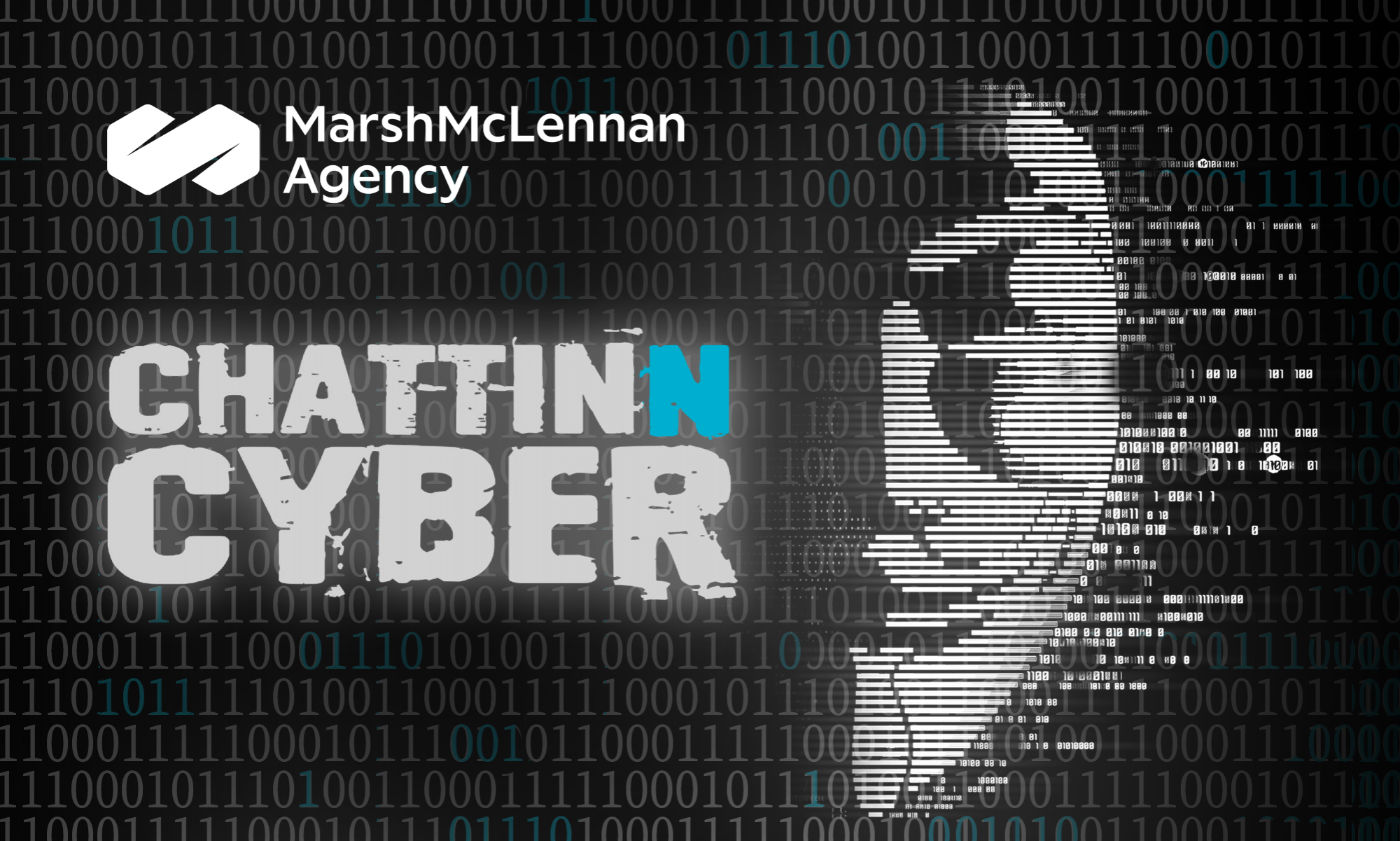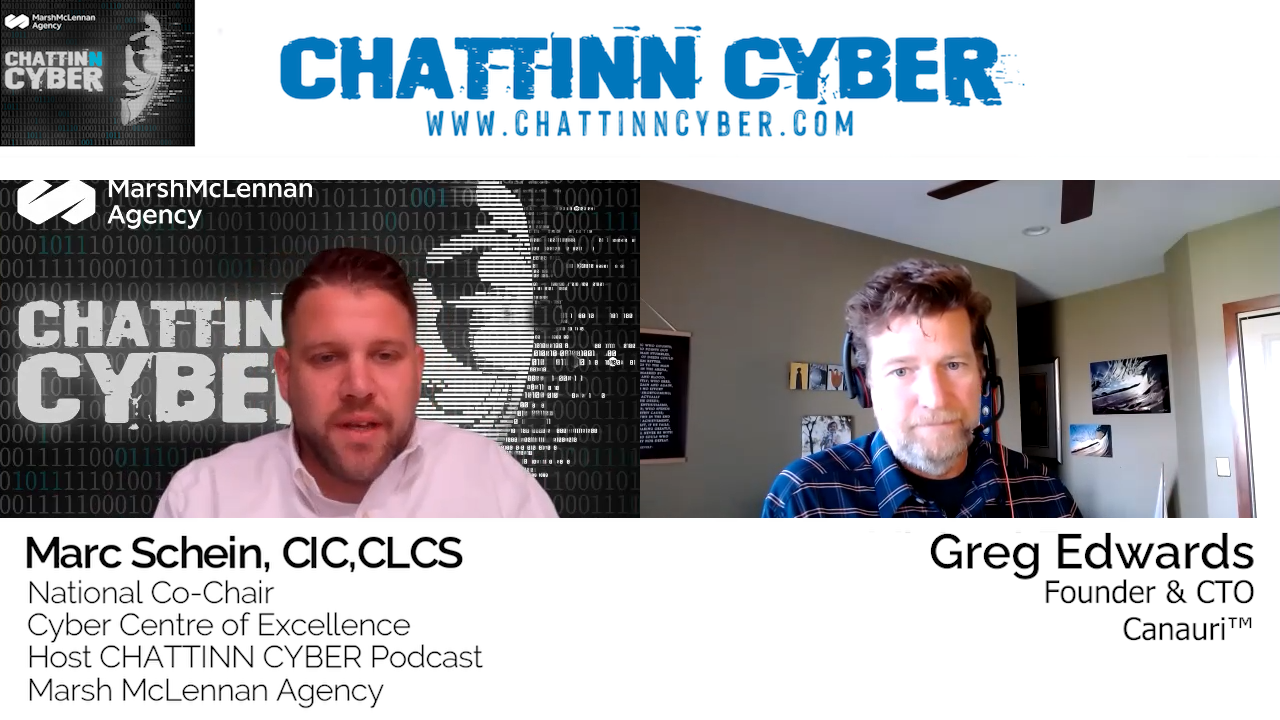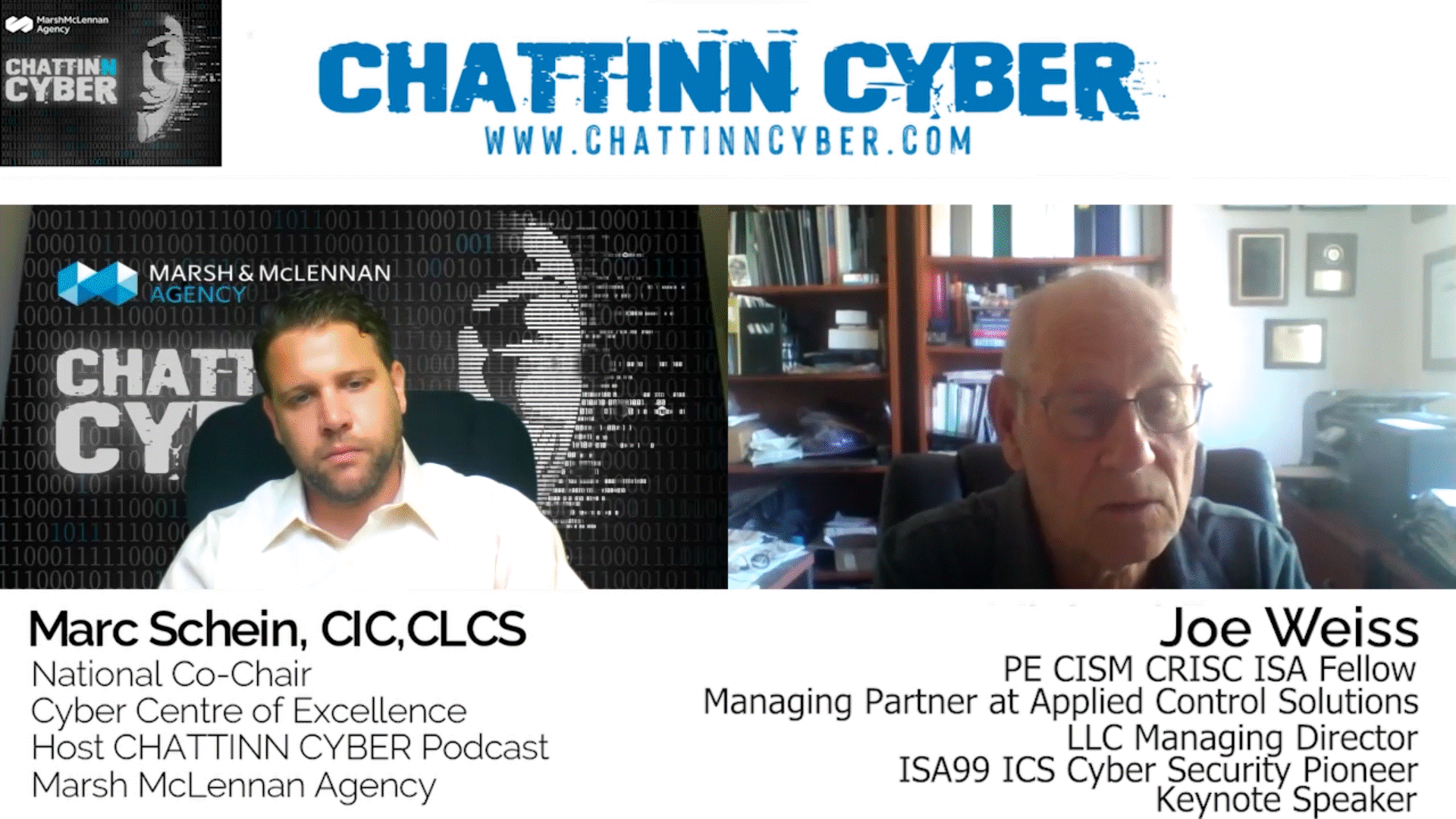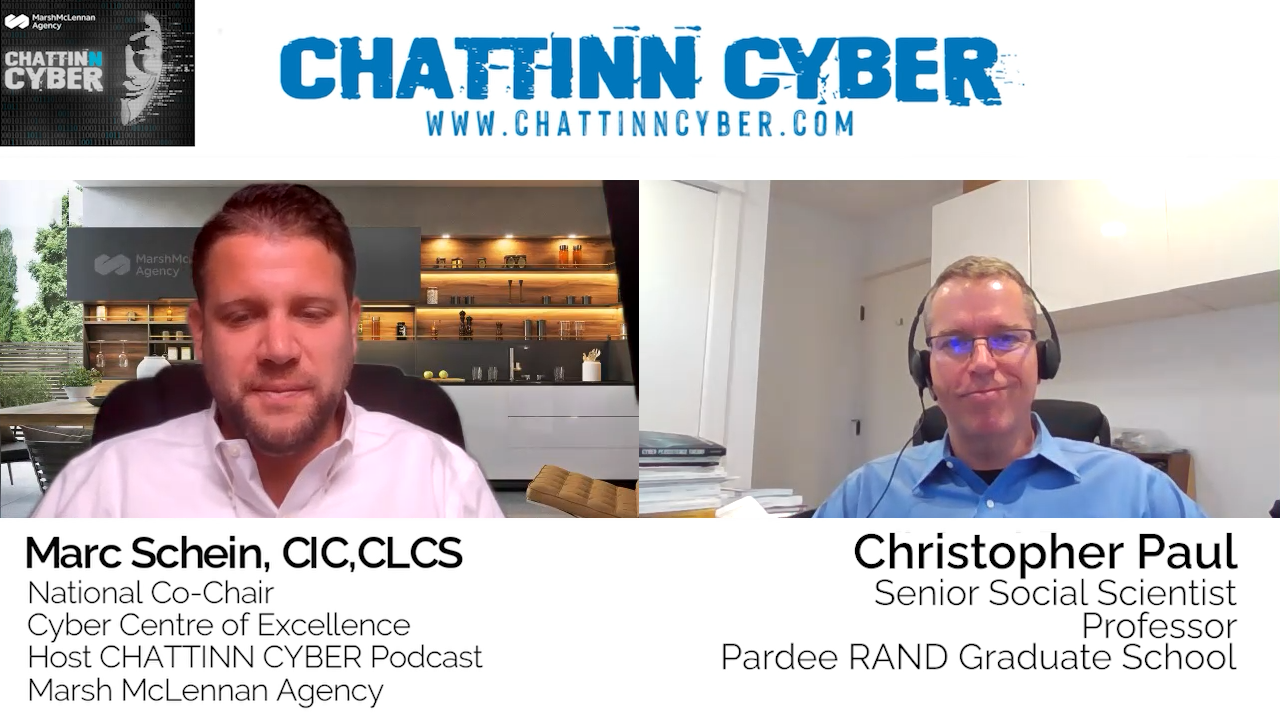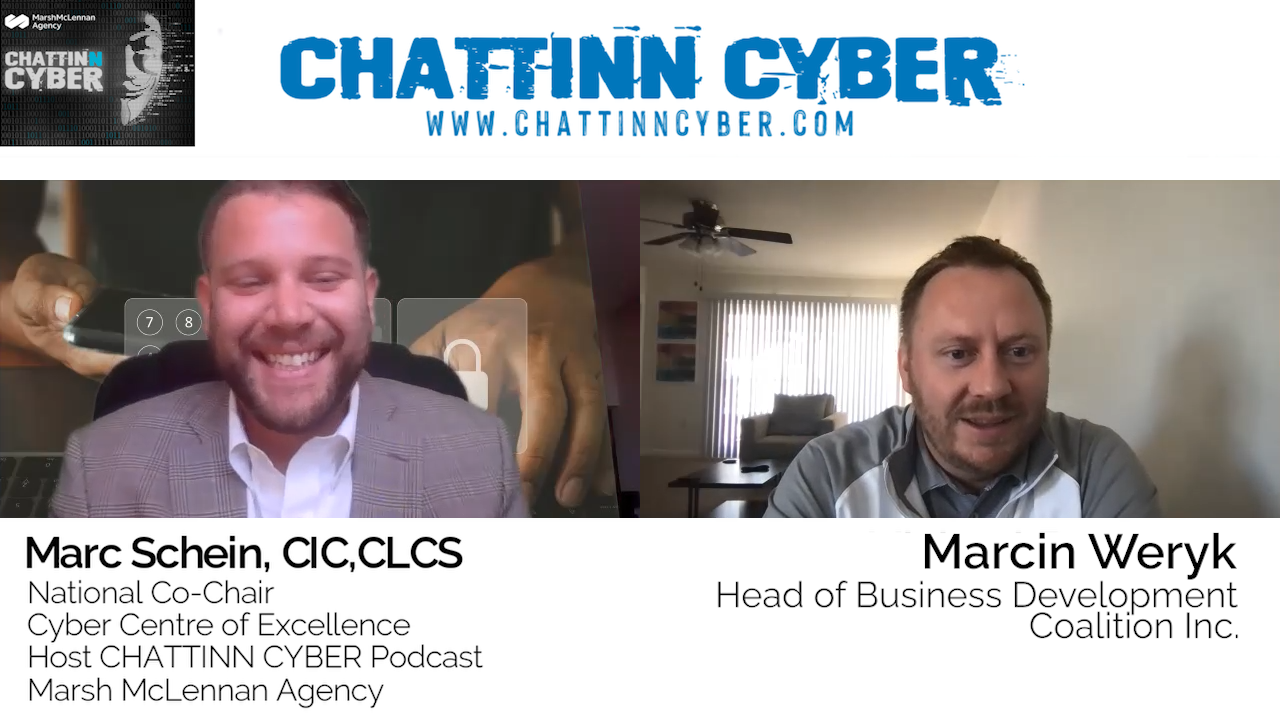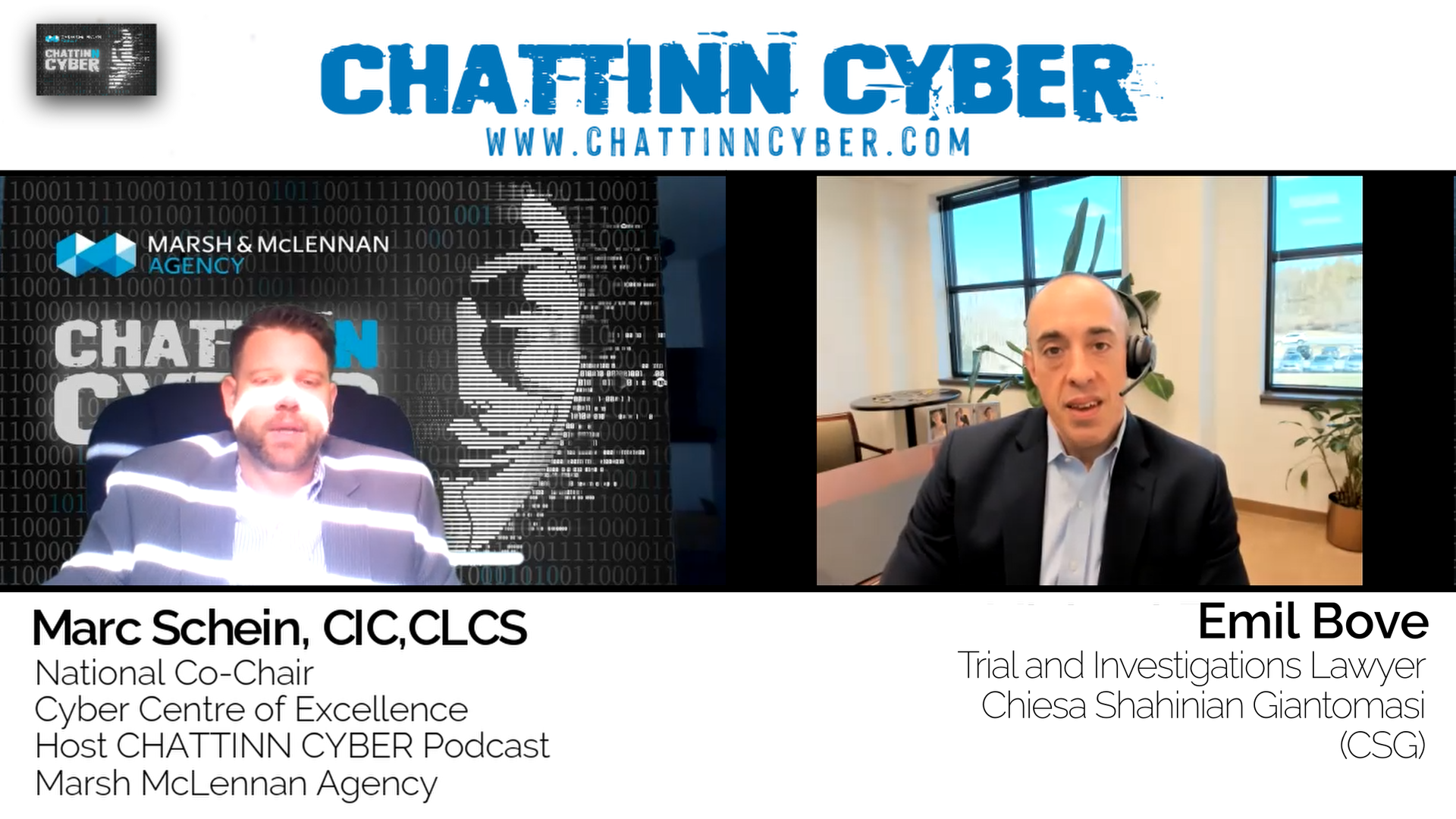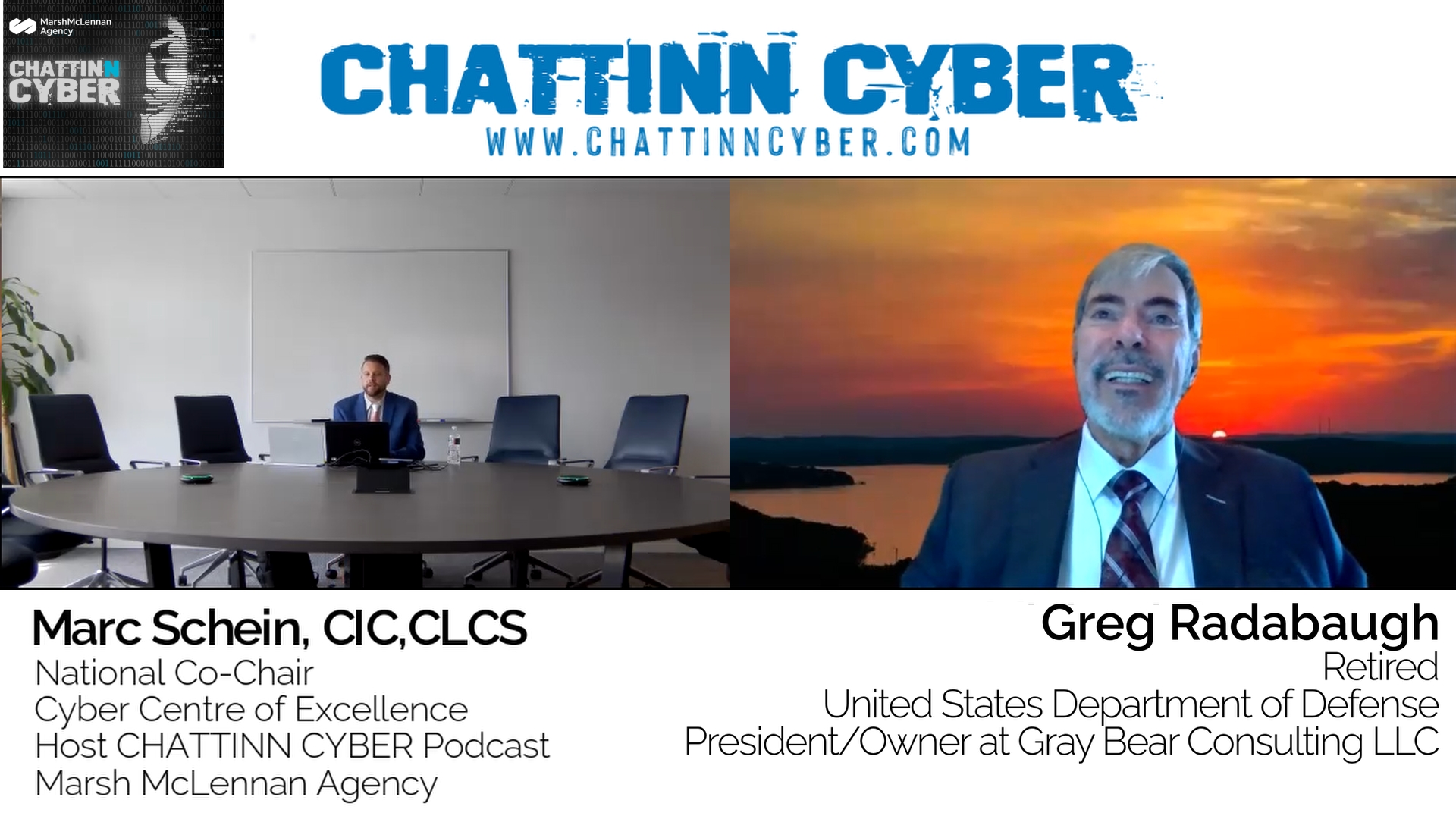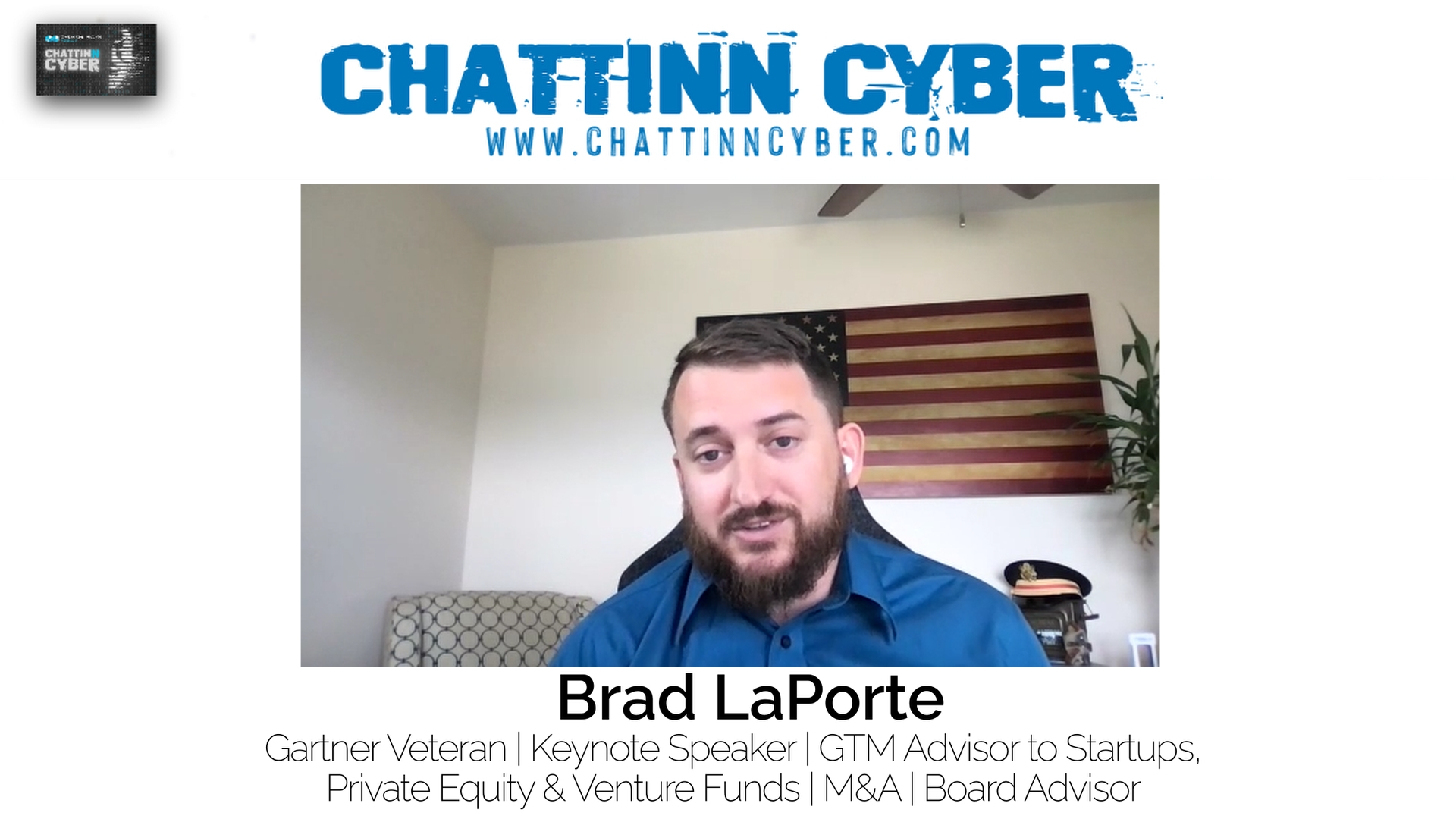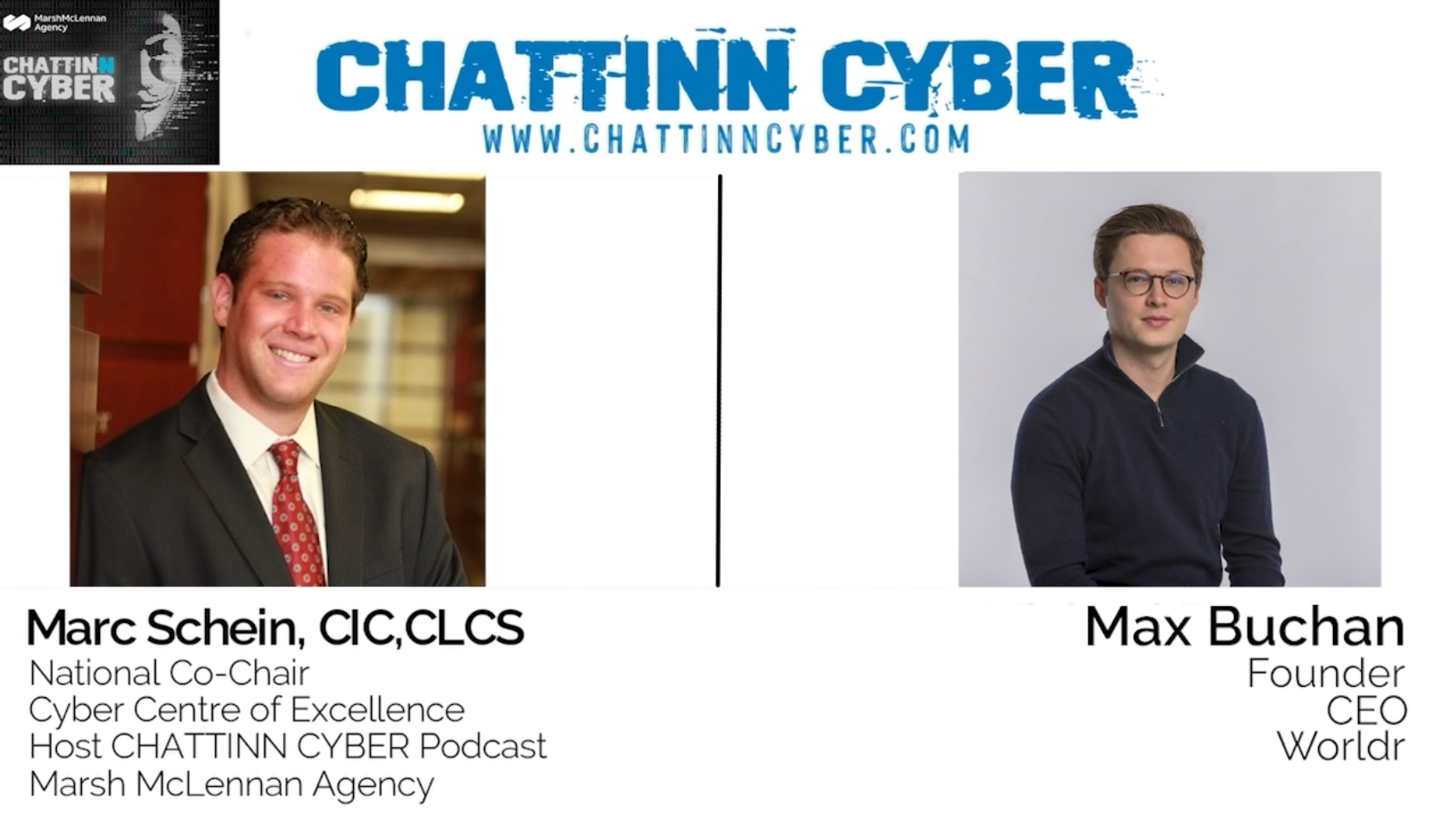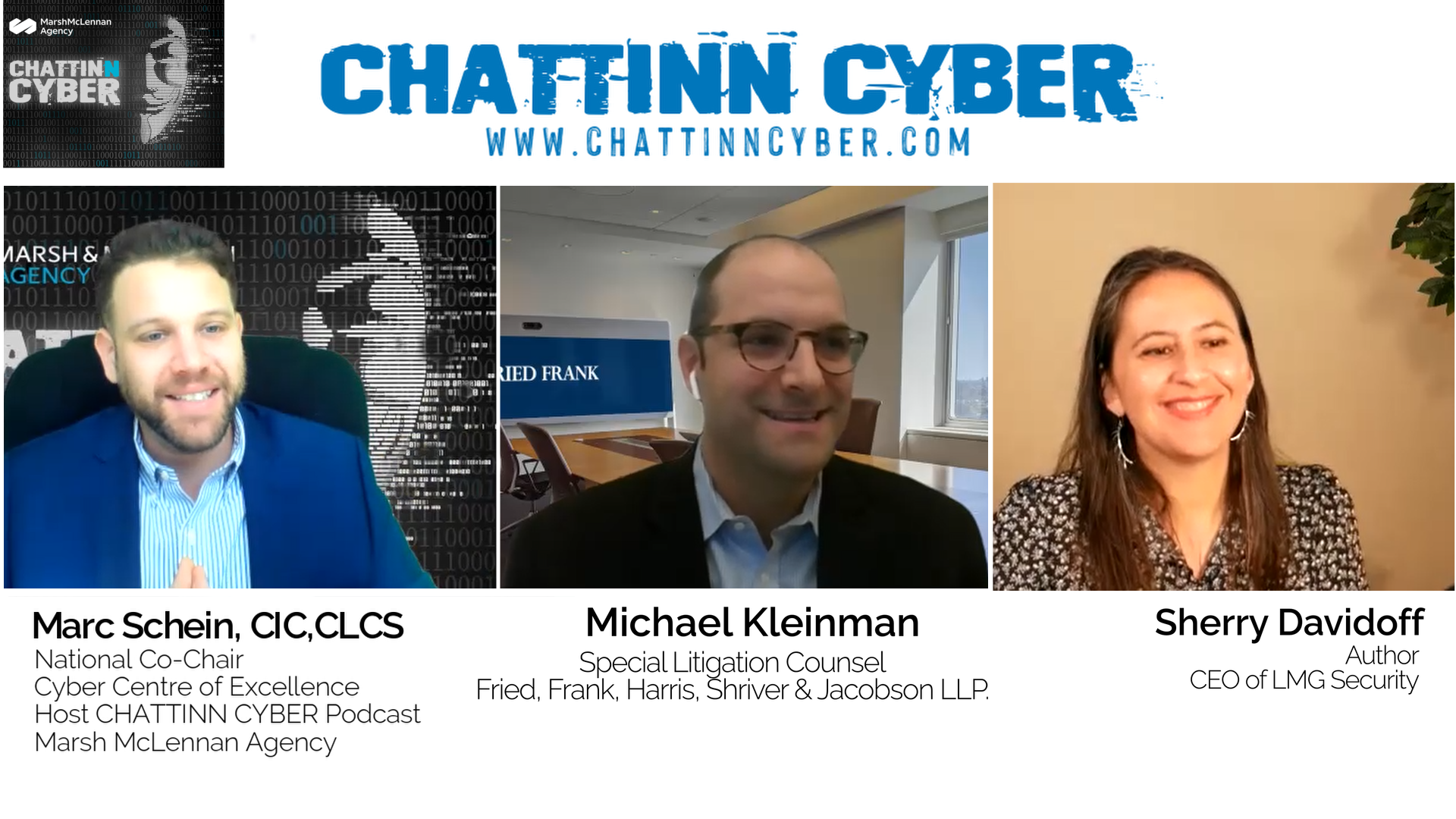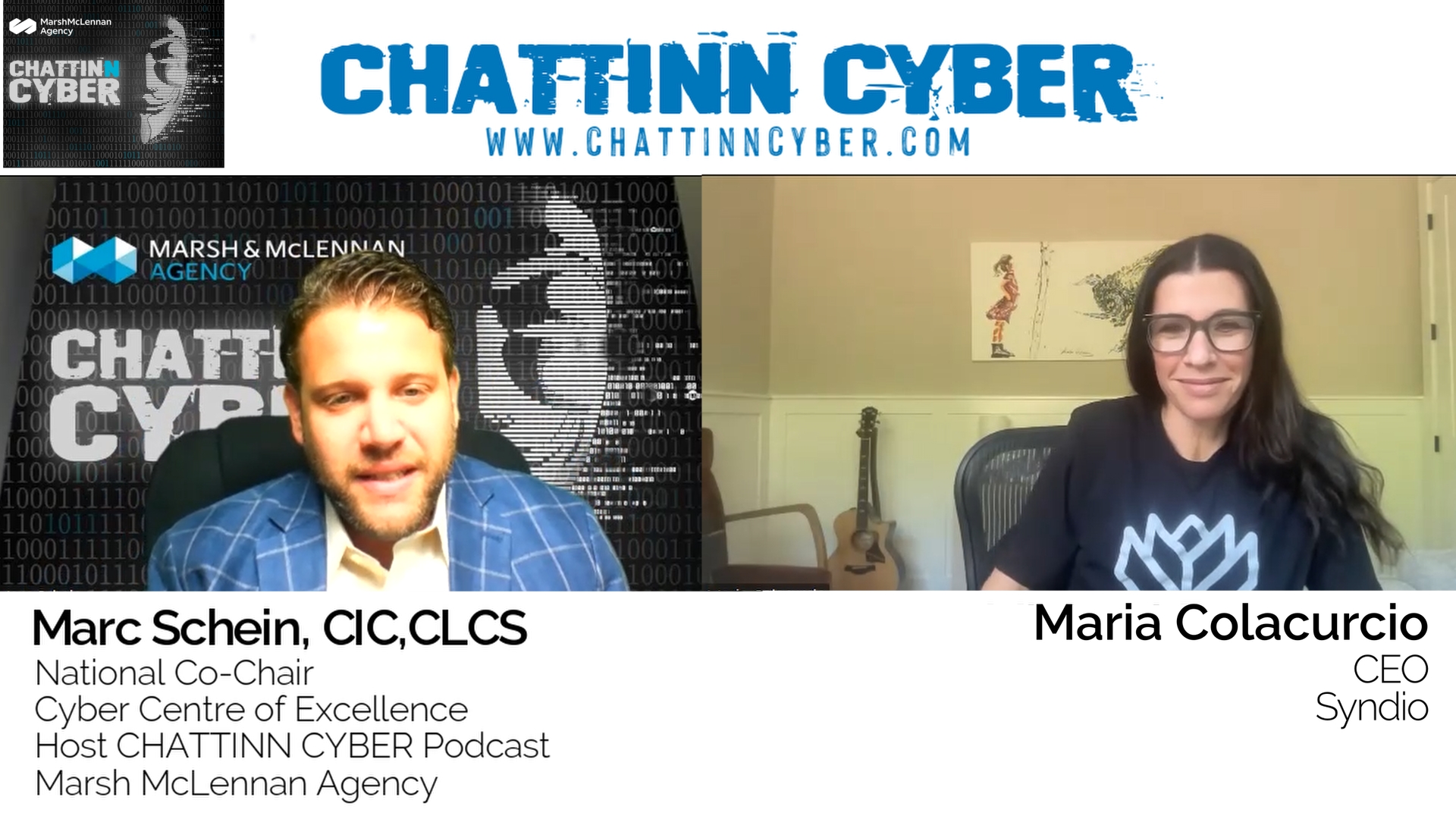Podcast: Play in new window | Download (Duration: 10:15 — 14.1MB)
Subscribe: RSS
In this episode of CHATTINN CYBER, Marc Schein interviews Greg Edwards, the Founder of Canauri, a well-known cybersecurity firm, to discuss the growing threat of ransomware attacks and how businesses can safeguard against them.
Greg has been involved in the backup and disaster recovery industry since 2007. In 2012, as ransomware attacks rose, he observed that many of his off-site backup clients were affected and needed full recovery. Recognizing that this could escalate into a greater issue, he founded Canauri and decided to address this threat using deception technology.
According to Greg, the rise of ransomware coincides with the increased use of cryptocurrency. He believes that cybercrime, in general, gained momentum in 2012 when Bitcoin became mainstream. He emphasizes the significance of layered security and recommends that businesses configure and manage all layers of defense effectively.
During this discussion, Greg also talked about how MSPs (Managed Service Providers) can fall prey to ransomware, and the devastating impact it can have on their clients. Greg narrated an incident where an MSP’s RMM (Remote Monitoring and Management) was hit by ransomware, causing 80 of their clients to be affected simultaneously.
With the shift towards remote work, Greg suggests that businesses must secure all endpoints, including laptops, desktops, and mobile devices, and ensure that the networks they use are secure. He also stresses the importance of patching systems as the most crucial action people can take to defend themselves against ransomware.
In conclusion, Greg shares valuable insights into the increasing prevalence of ransomware, the importance of layered security, and the measures businesses can take to protect themselves from ransomware attacks.
Highlights:
“If you look back again to 2012, the rise of ransomware coincides with the use of cryptocurrency. So not (that) I’m a fan of cryptocurrency, personally, but the rise of ransomware and cybercrime in general, all started to take off around that 2012 mark. And that’s when that’s when Bitcoin became really big and started to become mainstream.”
“In the pandemic, everyone said, go home, go work from home, here’s your laptop, or even people were carrying desktops in their monitors out of the office to go work from home, and then connecting remotely in any fashion that they could. And so that inherently just opens up lots of additional vulnerabilities and attack surfaces for the attackers. So what has to be done is all of those endpoints, laptops, desktops, even mobile devices, need to be properly locked down, and then also need to make sure that the networks that they’re on got to have the proper security now, across all of those remote workers, and manage them, just like you would if it were in an old corporate network environment.”
Time-Stamps:
[00:50] Greg’s experience starting an off-site backup company in 2007.
[02:37] The rise of ransomware coincided with the rise of cryptocurrency.
[03:56] Layman’s understanding of layered security.
[06:01] Ransomware attack on remote monitoring and management.
[07:16] Advice on how to better protect yourself.
[08:41] What to do to protect yourself from ransomware?
Connect with Greg:
LinkedIn: https://www.linkedin.com/in/gedwardswpd/
